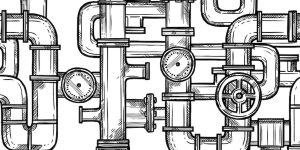Probate is the term for a legal process. The court reviews a will to determine whether it is valid and authentic. It is actually the process of proving a will. That means making sure the inheritance goes to the right heirs and that all the deceased’s wishes are fulfilled. Yes, Probate is necessary, especially for those who have large estates. It is necessary to at least go through the Probate. Without Probate of a will, tricky legal issues can arise.
Let’s take a look of the following questions to solve more queries about probate-
What is Probate?
Probate refers to the validity of a deceased person’s will or a deceased person’s estate without a will. The court of law proved that it would accept as a valid document. This will be the last testament of the deceased person.
When the person dies, the court assigns a beneficiary named in the will or an administrator to carry out the process of Probate. This includes accumulation of a deceased person’s assets to pay off any loans remaining on the person’s estate and dividing the estate assets to people named in the will.
When do we require a Probate?
It is highly desirable to make an oral will, and a will should generally be made in writing. On a testator’s death, the executor of the will may apply for Probate upon which the court inquires of the deceased’s heirs, whether they have objections regarding the same. If there exist no objections, then the court can grant Probate.
Among many reasons, an oral will should be avoided because if it is unprivileged, it cannot be probated. So if there are no beneficiaries or have issues with the will or to avoid legal problems, you should apply for the probate process.
Is Probate Necessary?
Yes, it is. The necessity of Probate depends on the property that the decedent owned and how it was held on the state’s law in which the decedent died and the laws of any states where the decedent held the property.
The probate process generally clarifies issues in a will and resolves any challenges to the distribution of an estate’s funds.The type of Probate needed depends on the size of an estate.
In which cases Probate is necessary?
First of all, if the decedent had no will, then this procedure is a must to ascertain the beneficiaries and to divide the decedent’s holdings and title to the property.
In the second case, if there was a will, all of the properties are part of the estate. But the probate process distributes their bank account details, personal properties(jewelry, furniture), and even the legal transfer of title.
Thirdly, if there are some issues with the will, that means if the decedent person was not of sound mind when the will was made at that time, Probate is required.
Last but not least, this procedure is required when an estate’s assets are simply in the deceased’s name. The property may not have any other names attached to it. In that case, the property must go through probate procedure so that it can be transferred to the respective heirs.
Can you Skip The probate process?
See, Probate sounds like a complicated and expensive process. But it is actually a simple legal procedure by which some assets must be passed from the deceased person to the heirs.
There are a lot of people who may not want to probate their last will. It is not necessary that a property has to undergo the procedure. Beneficiaries cannot legitimately own the property if the property doesn’t pass probate.
Advantages of the Probate Process
- No creditor has to claim on the probated and distributed assets.
- It helps to do a proper interpretation of estate value.
- An estate is a separate taxable body that can offer options to lessen taxes by transferring income to an heir.
- Sometimes all relevant family and friends may not agree over how an estate should be handled. There could be some disagreements. In that case, the probate court allows a neutral judgment over how an estate should be handled.
Conclusion
Probate is just a judge giving legal permission for a decedent person’s property or estate whether or not there is a last will.
For a vast estate this process is always necessary whether there is a will because not only is property distribution, Probate has distinct advantages besides being a legal necessity in some cases. For a small estate, it is not complex at all. It is usually eligible for a simplified process.













